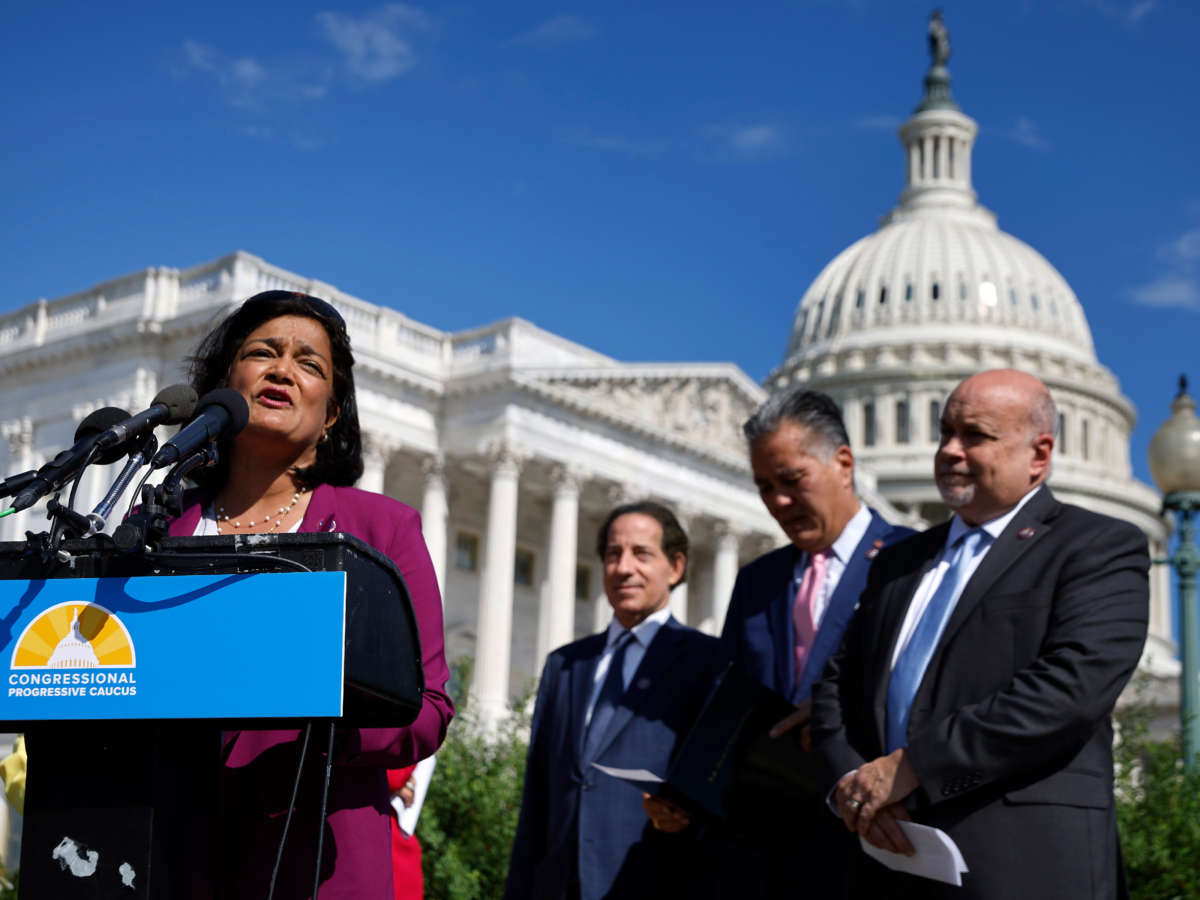On Tuesday, the Congressional Progressive Caucus (CPC) urged President Joe Biden to extend his streak of major executive actions by greatly raising the overtime threshold, making overtime pay available to millions more workers in the U.S.
CPC Chair Rep. Pramila Jayapal (D-Washington) issued a statement ahead of Labor Day calling for Biden and his Department of Labor (DOL) to raise the overtime salary threshold from a meager $35,568 to the salary of the 55th percentile of full time salaried earners, or about $83,000, by 2026.
This would allow millions more workers to access overtime protections under the Fair Labor Standards Act, which mandates that workers making less than the threshold earn time-and-a-half for hours worked past 40 hours a week.
“The current level of the federal guarantee for overtime pay is so low that it covers only about 15 percent of full-time salaried workers — forcing millions to essentially work any hours above 40 per week for free, at a time when they cannot afford to do so,” Jayapal said.
She said that, while steps like Biden’s plan to cancel up to $20,000 in student debt per borrower will provide much-needed relief to workers and their families, Americans are still in desperate need of relief in a time of high profit-driven inflation and economic instability.
Updating the overtime threshold to match the 55th percentile of salaried earners, which progressives say the Biden administration has the authority to do, could “give millions of people a raise,” Jayapal said.
Progressives have continually asked Biden to update the salary threshold and subject it to automatic annual updates, sending several letters to Labor Secretary Marty Walsh about the proposal and including the request in the caucus’s executive agenda that it released earlier this year.
But the threshold has remained the same since it was established in 2019 by the Trump administration. The move came after President Barack Obama had attempted to double the $23,000 limit in 2013, which would have increased it to $47,000 and tied the threshold to the cost of living. This would have better matched the historical levels of the overtime guideline; the $5,200 salary limit that was set in 1949, for instance, is equivalent to over $65,000 today.
Obama’s attempt to increase the limit was blocked by a Republican lawsuit in 2017 after Donald Trump took office. Trump’s DOL then implemented a much weaker threshold that doesn’t adjust with the cost of living, which is still in place today.
That threshold was implemented in response to backlash against Obama’s attempt to raise the limit from corporate lobbyists, who threatened that employers would force workers to lose wages and benefits under Obama’s rule.
“Overtime standards were created to prevent workers from being forced to work excessive hours without additional compensation and to incentivize employers to hire additional employees rather than overworking current ones,” a group of 22 Democrats, including Jayapal, wrote to Walsh in June. “Millions upon millions of workers were left behind under the Trump DOL rule, resulting in a loss of both protections and wages — wages that could have been taken home to families and put food on the table.”
Last summer, Walsh said that the limit is “definitely” too low and that the agency is reviewing the rule, but it has not yet released any new guidance.


